

TURFGRASS
JATROPHA PODAGRICA, ALSO KNOWN AS THE “BUDDHA BELLY PLANT”, IS USED IN TRADITIONAL MEDICINE TO TREAT INFECTIONS, SNAKEBITES, GOUT, AND MORE. PHOTO BY EMMA CLEVELAND FOR VIRGINIA TECH

School of Plant and Environmental Sciences



ON THE AG QUAD
At the heart of the School of Plant and Environmental Sciences (SPES) lies the Agricultural Quad, a vibrant home nurturing a community deeply rooted in agricultural excellence. Joining SPES opens doors to transformative experiences, where students actively engage in hands-on initiatives such as garden cleanups, plant sales, and educational events organized by dynamic clubs like the Soil Judging Team. These experiences not only cultivate a love for plants and environmental sciences but also instill valuable skills in teamwork, problem-solving, and practical knowledge in areas like controlled environment agriculture and agronomy.

SOIL JUDGING TEAM WINS (AGAIN)
The Soil Judging Team at SPES earned first place at the 2023 Southeast Region Soil Judging Contest and qualified for the upcoming National Soil Judging Championship in April. This also marks the team’s sixth win in the last 12 regional contests.
Under the guidance of John M. Galbraith, professor of soil science, the Soil Judging Team assessed diverse soil types, including floodplains, footslopes, and uplands.
The team included students Delia Alcorn, Grace Bartlett, Clara Betts, Carmen Curry, Danielle Davies, Liz Eroshenko, Sam Herrin, Gracie Litsinger, Joe Paterson, Rachel Parmele, Matthew Smith, and Will Ubben.
HORTICULTURE CLUB CLEANS UP



The Horticulture club at SPES welcomes all who love plants. The club host community service events, creates plant-related crafts, and organize multiple plant sales a year, including a big spring plant sale coming up on April 18-20.
Recently, the Horticulture Club came together to clean up the garden bed outside of Saunders Hall on the AG Quad. Students pulled weeds, trimmed shrubs and gave a new look to Saunders Hall.
The club offers scholarships for outstanding participation in the club, as well as offer many social events and outings during the school year, like a bonfire outside of the Urban Horticulture Center, and even a potluck at the Hahn Horticulture Garden.
NEW COURSE IN HYDROPONICS


BIG PEANUT SALE


SERVICE LEARNING IN SOUTH AFRICA

Students will learn first-hand what it’s like growing food indoors with Josh Kardos, instructor in horticulture, when they enroll in his new course: production of food crops in controlled environment agriculture.
Participants will gain knowledge in indoor farming and hydroponics basics, plants needs and different farming systems in controlled environments, cost management strategies for indoor farming, and much more.
The Agronomy club at SPES host an annual peanut sale in October.
Items include: peanuts (honey roasted or shelled), peanut brittle, cashews, pecans, and almonds.
At the recent sale, the club profited over $3,000 to help fund their future service projects.
Students studying global food security and health recently developed four service projects that they implemented over a two week period in Cape Town, South Africa.
Their projects focused on soil health, food systems, underutilized plants, and more. They were able to make the Oude Molen Food Garden Village accessible to visitors with disabilities, create plant profiles to help educate children at the Encotsheni Primary School, and collaborated with the Sustainability Institute to interact with local farmers and share soil health principles.
TRI-SOCIETIES FARM-TO-TABLE NUTSHELL GAMES

The American Society of Agronomy, the Crop Science Society of America, and the Soil Science Society of America, hosted their annual “Tri-Societies” meeting in St. Louis, Mo. Students from around the world gathered to give educational presentations involving environmental sciences.
Several students within SPES placed in the top three for the various student competitions that took place at the event.
Those students included Ranadeer Reddy Vennam, Elisabeth Kitchin (pictured above), Milad Vahidi, Jonathan Kubesch, Caroline Wolcott, Summer Thomas, Keely Beard, Caleb Henderson, Navdeep Godara, Derek Hilficker, Travis Roberson and Aaron Tucker.

The 2023 Virginia Farm to Table Conference was held in Weyers Cave, Va, and was hosted as a partnership between SPES, the Virginia Cooperative Extension, the Center for Food Systems and Community Transformation, and the Virginia Soil Health Coalition.
“The Virginia Farm to Table Conference gives everyone a chance to engage and network with like-minded people, have thought-provoking discussions, and gain timely knowledge on food production, marketing, natural resource management, and community relationships,” said Mary Sketch Bryant, director of the Virginia Soil Health Coalition.

The 2023 Nutshell Games tasked students with presenting their research projects using everyday language and a prop in just 90 seconds. A panel of seven judges from the university and surrounding community evaluated their presentations and gave out awards. All participants received a participation certificate and a professionalquality video recording of their talk.
Eli Russell (pictured above) presented his research on “turning the combine from a weed seed spreader into a weed seed predator.” Russell is a SPES graduate student studying plant pathology, physiology and weed science.
RECENT EVENTS
The SPES community embraced global opportunities, showcasing excellence in environmental sciences and cultivating vital connections at conferences. Our commitment to fostering impactful research was evident as students demonstrated effective communication skills in presenting complex topics. These experiences highlight the diverse and enriching opportunities at SPES, empowering students to excel academically, build networks, and contribute meaningfully to their fields.

Controlled Environment Agriculture Roadmap
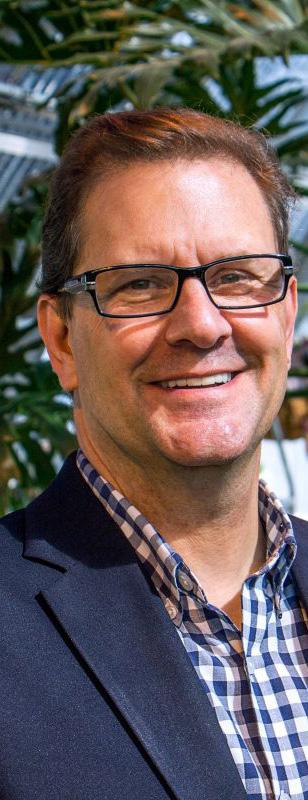 Michael Evans
Michael Evans
The Controlled Environment Agriculture Innovation Center, a joint project between Virginia Tech and the Institute for Advanced Learning and Research (IALR), recently completed the development of a strategic roadmap regarding the economic growth potential for the Controlled Environment Agriculture (CEA) industry in the commonwealth of Virginia. Analyzing the current state of the industry, this roadmap outlines ways that the CEA Innovation Center can support future economic growth among large and small companies in the CEA sector through a variety of initiatives tied to collaboration, research, economic development, workforce training, and more.
The development of this roadmap, which was completed by the Virginia Tech Center for Economic and Community Engagement in partnership with the IALR, was funded through a $77,000 grant from GO Virginia Region 3.
“The outstanding work conducted by the whole team in developing the CEA Roadmap will help all of us to effectively work together in our common goal of making Virginia an international hub for controlled environment agriculture and utilizing the growing field of controlled environment agriculture as an economic development engine for Virginia. We are looking forward to exciting collaborations going forward,” said Michael Evans, director of SPES and co-director of the CEA Innovation Center.
Economic Development in Virginia
PHOTOS
FOR ADVANCED LEARNING AND RESEARCH
The second annual CEA Summit East event attracted 240 participants from 33 U.S. states, Canada, the Netherlands, and Sweden. This strategic partnership, encompassing SPES, the Virginia Seafood Agricultural Research and Extension Center, and the IALR, aimed at fostering CEA innovation for economic development in Virginia.
The diverse gathering included growers, educators, scientists, Virginia Cooperative Extension specialists, suppliers, engineers, tech specialists, and architects/developers, providing a comprehensive platform for knowledge exchange and collaboration. Over the course of the day, attendees engaged in impactful keynotes, informative panels, and enlightening breakout conference sessions.
Matthew Lohr, Virginia Secretary of Agriculture and Forestry, set the tone for the event, delivering a keynote address on Virginia’s commitment to next generation agriculture and leading the indoor farming revolution. On the second day, the summit commenced with a keynote from AeroFarms president and chief financial officer, Guy Blanchard.

A focal point of the CEA Summit was the inclusion of four educational tracks – grower, business and marketing, new technology, and workforce development. These tracks facilitated collaborative discussions among academics, growers, and business experts, covering a spectrum of topics, from scaling up and negotiating energy costs to the future of CEA crops, aquaponics initiation, and insights from recent college graduates entering the CEA sector. The event also showcased 21 tabletop exhibits featuring the latest innovations and services, providing a hands-on experience for attendees. Beyond the conference sessions, attendees delved into panel discussions and 15-minute CEA industry and research showcase sessions, gaining insights into cutting-edge research findings and industry success stories.
Additionally, the summit introduced a poster competition, offering graduate students a platform to share high-quality CEA-related research.
This collaborative effort between industry leaders, educational institutions, and government entities not only positions Virginia at the forefront of CEA innovation but also fosters an environment conducive to economic growth. The CEA Summit East has proven to be a catalyst for cultivating prosperity, driving the state’s economy forward through cutting-edge agricultural practices.




David Schmale, professor of plant pathology, was recently named the director at the Translational Plant Sciences Center
FACULTY AND STAFF SPOTLIGHT
Bo Zhang, associate professor of plant breeding and genetics, received the Excellence in Applied Research Award in 2023. Zhang developed an internationally recognized soybean breeding program that applies traditional and modern breeding techniques to enhance the value of soybeans for both human and animal consumption. Her work has continuously provided new and improved soybean cultivars for the Mid-Atlantic region, and her program is also one of the leading food-grade soybean programs in the United States.

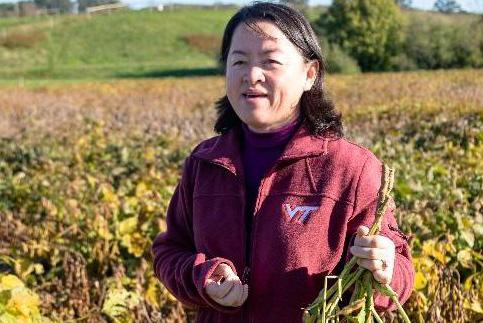
Kang Xia, professor of crop and soil environmental sciences, has achieved a significant milestone with her recent promotion to the position of associate director of the Virginia Agricultural Experiment Station. Since joining Virginia Tech in 2012, Xia has made remarkable contributions, notably establishing an internationally recognized environmental chemistry program. Her expertise has also secured over $12 million in research funding for Virginia Tech.
Ozzie Abaye, professor of crop and soil environmental sciences, has been appointed the Thomas B. Hutcheson Jr. Professor of Agronomy by the Virginia Tech Board of Visitors. Abaye has helped develop several programs with lasting impacts during her work in Senegal, including seed curriculum and training programs for higher education institutions and helping to initiate the 4-H Positive Youth Development in Agriculture project that now boasts active and educational community programs in several villages.

FACULTY AND STAFF SPOTLIGHT
Michael Goatley, professor and extension turfgrass specialist, was awarded the 2023 Professional Grounds Management Society Gold Medal Award. This award recognizes individuals for their outstanding and long-term achievements within the green industry. Goatley dedicated a substantial portion of his career to outreach efforts, particularly in the area of urban nutrient management. He played an instrumental role in developing the first-ever urban nutrient management planning certification and testing program. Goatley is an active advisor and participant in programs such as the Extension Master Gardener Program and Healthy Virginia Lawns, which support urban water quality protection.


Kaylee South, assistant professor in controlled environment agriculture, has secured a grant for $145,841 from the Virginia Tobacco Region Revitalization Commission. The grant is apart of the commissions Southern Virginia program, which promotes economic growth and development in formerly tobacco-dependent communities like Southern Virginia. The primary focus of the grantfunded activities involves the development and assessment of biofungicides. South will concentrate on combating common diseases in controlled environment agriculture production, specifically targeting grey mold in strawberry production and downy mildew in spinach production.
Daniel Sandor, assistant professor of turfgrass science, recently appeared on WFXR Fox News for a segment on the benefits of mulching your leaves during the fall season. Did you know that mulching leaves fertilizes your lawn and prepares it for a successful grow in the spring? Also, don’t forget that bagging leaves causes landfills to fill up with unnecessary products and actually hurts the environment.

Seed Scientist Unite in Roanoke
PHOTO BY GREG WELBAUMScientists hailing from 13 different states across the nation convened for a groundbreaking collaborative research endeavor, focusing their collective expertise on the environmental factors and genetic traits that dictate the quality and performance of seeds. This gathering brought together scholars deeply rooted in academia, each representing prestigious universities renowned for their commitment to accessible education and cutting-edge research in agriculture and allied disciplines.
Greg Welbaum, a professor at the School of Plant and Environmental Sciences, orchestrated the event and illuminated the audience with a comprehensive overview of seed research spanning diverse domains. Delving into the depths of seed biology, the assembled scholars exchanged insights and findings, with each presentation adding a new layer of understanding to the multifaceted landscape of seed science.
The objective of the project is to forge strong bonds among seed scientists sharing common research interests, fostering an environment conducive to collaborative endeavors and paving the way for joint exploration into uncharted territories. Researchers aimed to secure funding for ambitious joint projects that promise to push the boundaries of seed research and innovation.
In extending an open invitation to fellow researchers affiliated with the United States Department of Agriculture or institutions of higher learning, Hector Perez, the incoming chair of the collaborative research group and a professor at the University of Florida, emphasized the inclusive nature of the initiative, welcoming all who shared a passion for advancing the frontiers of seed science.
Taking charge of the logistical aspects essential to the project’s success, Paul Johnson, a professor from Utah State University, offered invaluable insights into the administrative intricacies, ensuring the seamless operation of the endeavor. As the group sets its sights on a new proposal for a comprehensive four-year project, researchers keen on joining this intellectual consortium are urged to connect with Johnson.


Half a Century of Field Days:
Virginia Tech’s Turfgrass Legacy
PHOTOS BY MICHAEL GOATLEY AND DANIEL SANDOROn Virginia Tech’s campus lies the Turfgrass Research Center, a vibrant hub for collaboration, education, and innovation among students, faculty, and staff. Recently celebrating its 50th anniversary of field days, this milestone isn’t merely a time for reminiscing, but an opportunity to acknowledge the profound impact that turfgrass science has had on the Virginia Tech community.
Founding Fathers and Visionaries
The story of Virginia Tech’s turfgrass program traces back to the visionary minds of John Shoulders and Roy Blaser, both professors of agronomy in the 1950s. Recognizing the value of turfgrass research and teaching, they laid the foundation for what would become a pioneering program in the field. Dick Schmidt, one of the early recruits to Virginia Tech’s turfgrass program, recalls the humble beginnings and the relentless pursuit of excellence that defined those early years. “We were building something from scratch, fueled by a passion for understanding and nurturing the intricate world of turfgrass,” Schmidt said.
The program quickly gained momentum with the arrival of luminaries like Houston Couch, Bill Chappell, and Jack Hall, each leaving a mark on the landscape of turfgrass research. Their collective expertise in pathology, weed science, and extension work elevated Virginia Tech’s standing in the turfgrass community, laying the groundwork for decades of groundbreaking research and innovation.
Pushing the Boundaries of Knowledge
As the program expanded, so did its scope of research. From the earliest experiments conducted on the edge of the campus golf course to the establishment of the Turfgrass Research Center in the early 1970s, Virginia Tech’s commitment to advancing turfgrass science was unwavering. Technological advancements and collaborative efforts with industry partners propelled the program forward, with innovations like drone sprayers and thermal imaging reshaping turfgrass management practices.
“We’ve come a long way from the days of manual labor and guesswork. Today, we have precision tools that allow us to target applications with unprecedented accuracy, minimizing environmental impact and maximizing efficiency,” said David McCall, associate professor of turfgrass pathology.
A Culture of Collaboration
Central to the success of Virginia Tech’s turfgrass program is its collaborative ethos. Industry partnerships, academic alliances, and community engagement have been integral to advancing research and translating insights into real-world solutions. The annual field days at the Turfgrass Research Center serve as a nexus for knowledge exchange, bringing together industry professionals, researchers, and students to share insights, best practices, and emerging trends.
“None of this would be possible without the support and expertise of our industry partners. Together, we’re not just solving problems; we’re shaping the future of turfgrass management.” said Caleb Henderson, Ph.D. student, whose research on thermal imagery garnered attention at this year’s field day.


Impacting the Commonwealth
The impact of the Turfgrass Research Center on the Virginia Tech community are manifold, fostering a culture of innovation, collaboration, and environmental stewardship. Through outreach programs, educational initiatives, and community partnerships, the center enriches the lives of students, faculty, and residents alike.
For students, the Turfgrass Research Center offers unique opportunities for hands-on learning and professional development. Internships, research projects, and industry collaborations provide students with invaluable experience and mentorship, preparing them for successful careers in turfgrass management and related fields. David Chalmers, emeritus turfgrass specialist, emphasizes the importance of mentorship in shaping future leaders. “Investing in the next generation is not just a responsibility, it’s a privilege,” Chalmers said.
Faculty and researchers benefit from access to state-of-the-art facilities, cutting-edge technology, and collaborative networks that enhance their research and teaching endeavors. The center’s interdisciplinary approach fosters cross-disciplinary collaboration and a culture of innovation and excellence.
The Turfgrass Research Center also plays a vital role in supporting local communities and industries. Through extension services, workshops, and outreach events, the center shares research findings, best practices, and resources with turfgrass professionals, homeowners, and policymakers, promoting sustainable land management practices.
A Green Campus and Beyond
One of the most remarkable impacts of the Turfgrass Research Center is its contribution to environmental stewardship. Through research into sustainable land management practices, the center has played a pivotal role in promoting biodiversity, conserving water resources, and mitigating environmental impact.
The Virginia Tech campus itself serves as a living laboratory for sustainable landscaping practices, with turfgrass playing a central role in the university’s commitment to environmental sustainability. From rain gardens and bioswales to green roofs and permeable pavements, Virginia Tech’s landscape architects and turfgrass specialists work hand in hand to

design and maintain outdoor spaces that are both functional and eco-friendly. This integrated approach to campus planning reflects a broader culture of environmental stewardship that permeates all aspects of university life.
Driving Economic Growth
The impact of the Turfgrass Research Center extends beyond environmental and social benefits to drive economic growth and innovation in the turfgrass industry. Through research and development initiatives, the center supports the development of new turfgrass varieties, technologies, and management practices that enhance the competitiveness and sustainability of the industry.
Industry partnerships play a crucial role in advancing research and translating scientific discoveries into commercial products and services. From turfgrass breeders and seed producers to equipment manufacturers and landscaping companies, industry collaborators leverage the expertise and resources of the Turfgrass Research Center to develop innovative solutions that meet the evolving needs of the market.
Embracing the Future of Turfgrass
As the Turfgrass Research Center commemorates 50 years of field days, its core mission endures: to deliver science-based solutions vital to Virginia’s flourishing turfgrass industry. Beyond mere aesthetics, the center underscores the functional significance of turfgrass in soil stabilization and environmental sustainability, pioneering advanced research in genetics and biotechnology. Looking ahead, it stands ready to propel economic growth and environmental stewardship, inspiring successive generations to uphold its legacy of excellence.
Through collaborative partnerships and educational initiatives, the center remains dedicated to nurturing healthy, resilient turfgrass systems that not only meet present needs but also safeguard the future. Looking ahead, with improvements being implemented by the Turfgrass Research Centers’ manager, John Hinson, it stands ready to propel economic growth and environmental stewardship, inspiring successive generations to uphold its legacy of excellence.

“I can sincerely say that I use my degree every single day. My knowledge of plants, estimating, sales, and design are all huge parts of my day-to-day work life. The knowledge and experience I gained at Virginia Tech has been invaluable,” said Christa Bush, environmental horticulture alum.
ALUMNI SPOTLIGHT
Christa Bush graduated from SPES with a B.S. in environmental horticulture. She also minored in turfgrass management and music. Currently, Bush is a floriculture manager at Yellowstone Landscape where she manages an annual flower and seasonal display portfolio in Northern Virginia, Washington D.C. and Maryland.


Eric Scruggs (pictured second from the left) graduated from SPES with a B.S. in crop and soil sciences, and a M.S. in weed science.
“Since leaving Virginia Tech, I have been focused on working with growers to improve their ROI by economically pushing both maximum yields achieved within certain fields and increasing their overall average yields. It has been very rewarding to see a few of my growers place or win in yield contests including the Virginia Hard Wheat Yield contest and the Virginia Soybean Yield Contest” said Scruggs.
Garrett Brockwell graduated from SPES with a B.S. in environmental horticulture. Since graduation, Brockwell has started his own business, Orchard Hill Farm, and is currently in his third growing season as the owner.
“Plant propagation is one skill I learned at SPES that has really helped me expand the number of plants I have with minimal cost, but plenty of benefits” said Brockwell.

STUDENT SPOTLIGHT
Gabrielle Ripa, holding a B.S. in wildlife ecology and management, and a M.S. in wildlife, fisheries and aquaculture, is currently researching factors influencing non-native plant establishment. Overcoming pandemic challenges, she values a strong graduate student community. Ripa is a member of the invasive species working group through the Southeast Partners in Amphibian and Reptile Conservation, where she is currently working to put together a brief publication detailing the documented effects of invasive plants on herpetofauna.

Unius
, a student in crop and soil environmental sciences, excels in research on saline soil remediation, showcasing the benefits of biochar and composted manure. Overcoming challenges from Uganda to the U.S., he embraces diversity and turns obstacles into growth opportunities. Engaged in field research and active in the local community, Arinaitwe looks forward to being positioned for success in agronomic research at Virginia Tech.

Mariah Rojas, a first-gen student with a B.S. in biology, is currently a Ph.D. candidate, researching microbial ice nucleation under Boris Vinatzer, professor of plant pathology. A notable project she was involved in was the taxonomy of pantoea bacteria, showcasing growth in bioinformatics. Overcoming Ph.D. doubts, a strong support system, including Vinatzer and family, kept Rojas focused. Beyond coursework, contributions to her community include volunteering, teaching assistant roles, and an active involvement in student organizations.

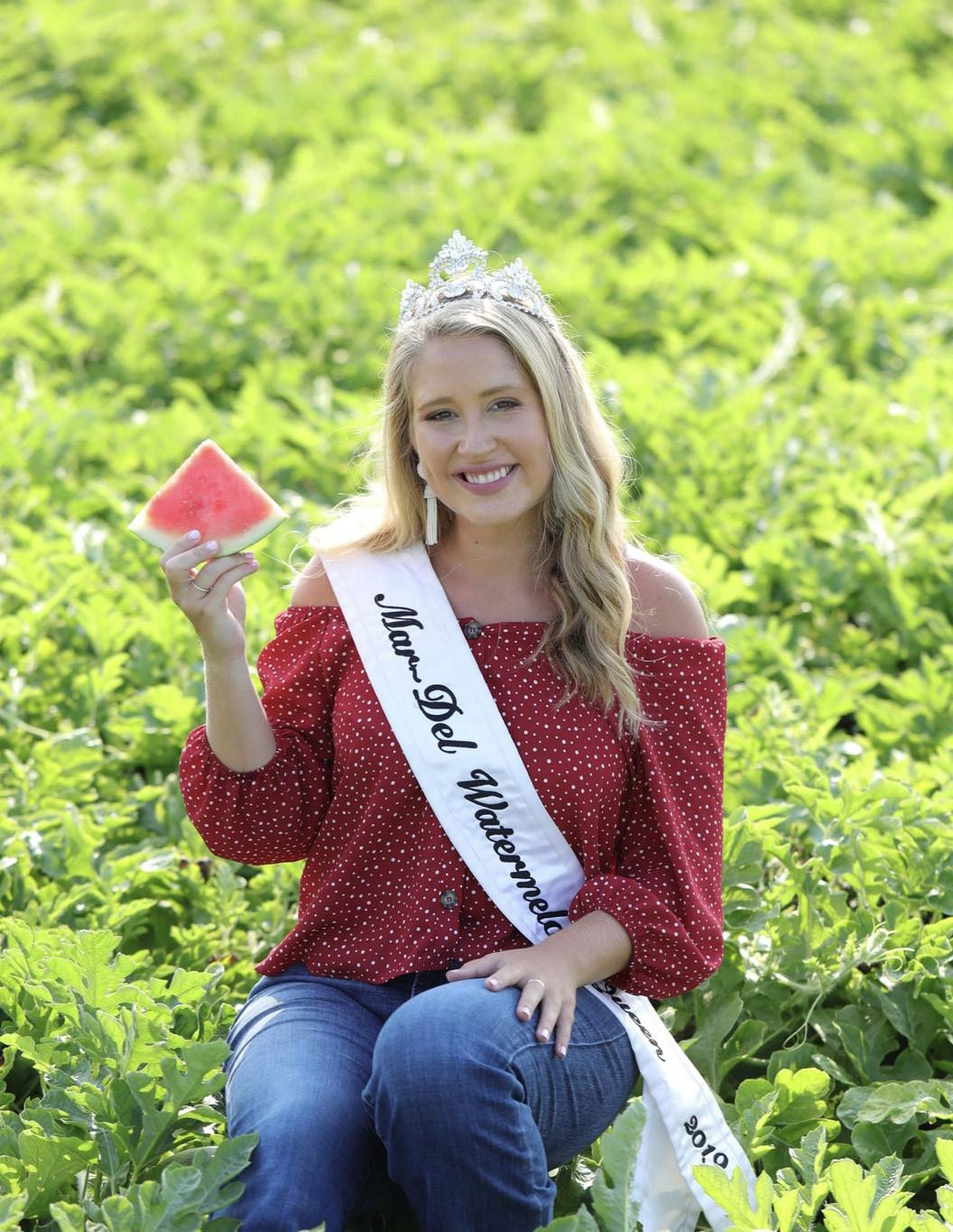
“Growing up on the farm and witnessing the dedication my parents had towards agriculture, fueled my passion for the industry. I am currently in the third year of my Ph.D. program working on evaluating alternative winter hay-feeding strategies for beef producers in the Southeastern United States,” said Summer Thomas, crop and soil environmental sciences student.

“Right now, I am taking part in a service-based study abroad program in South Africa and it is by far the coolest thing that I have gotten to do in college. The trip focused on food security and everyone took on a different project. I was so excited to be a part of Team Mama Vivian - a group that was going to build greenhouses for an elementary school. Though I haven’t completed this project yet, interacting with Mama Vivian has been one of the highlights for sure. She is seriously one of the coolest ladies I have ever met,” said Evan Stanfield, environmental horticulture student.
STUDENT SPOTLIGHT
Liz Eroshenko excelled in her research on biochar’s impact on soil properties, earning recognition at the 2023 Dennis Dean Undergraduate Research Conference. As president of the Soil Judging Team, she led the team to national success, raised significant funds, and expanded leadership positions. Additionally, Eroshenko actively contributes to campus life as a SPES First Year Seminar peer mentor and member of CALS Ambassadors’ Recruitment Committee. Inspired by John Galbraith, professor of soil science, she values his mentorship and passion for soil science. Eroshenko’s ability to analyze entire environments reflects a key skill acquired during her education.

John Huston’s academic journey at Virginia Tech took him to Ecuador for impactful research on tropical forest restoration, particularly in applied nucleation and seed dispersal projects. Overcoming personal challenges, he made substantial contributions to the campus community, notably addressing food insecurity through the Office of Sustainability. Inspired by mentors like Brian Badgley, associate professor of environmental microbiology, and Leighton Reid, assistant professor of ecological restoration, Huston found his passion for ecological restoration, showcasing the importance of curiosity, resilience, and maximizing college experiences.

Leilani Hyatt made a lasting impact by creating a SPES major database and excelling as an intern for the Office of Sustainability’s Water Team. As the vice president of the horticulture club and an undergraduate research assistant, she demonstrates versatility and dedication. Engaging in various roles, including being a SPES peer mentor, she actively contributes to the university community. Hyatt’s journey involves overcoming challenges in general chemistry, embracing the importance of seeking help, and finding her passion for environmental sciences through impactful field classes.
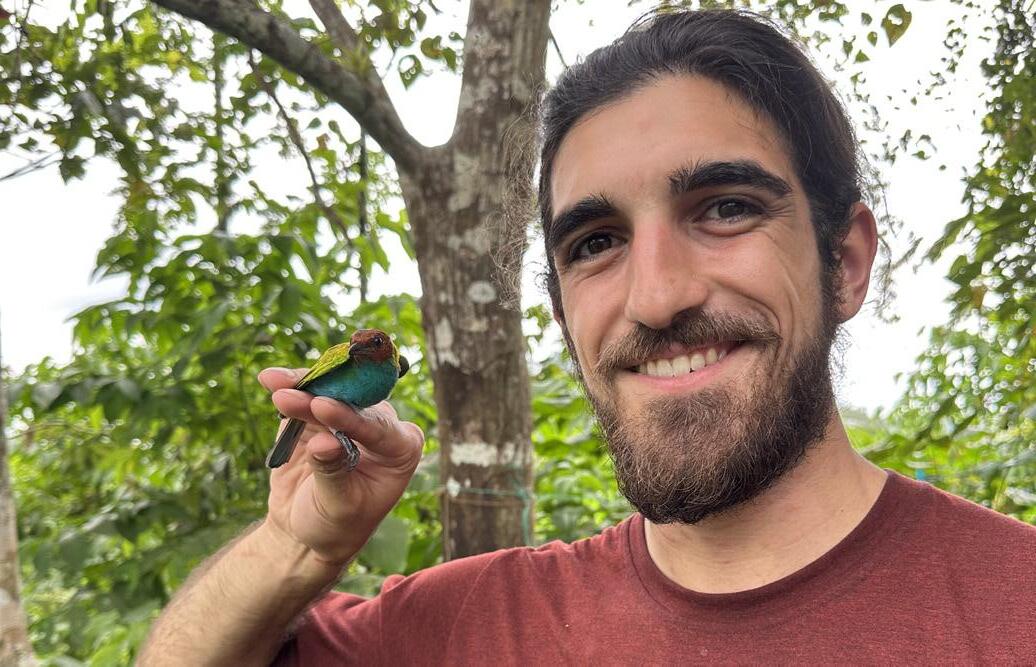




UPCOMING EVENTS
CALS Alumni Awards: April 5th
Spring 2024 Commencement: May 8th
Virginia Small Grains Field Day: May 16th
Alumni Weekend: June 6th
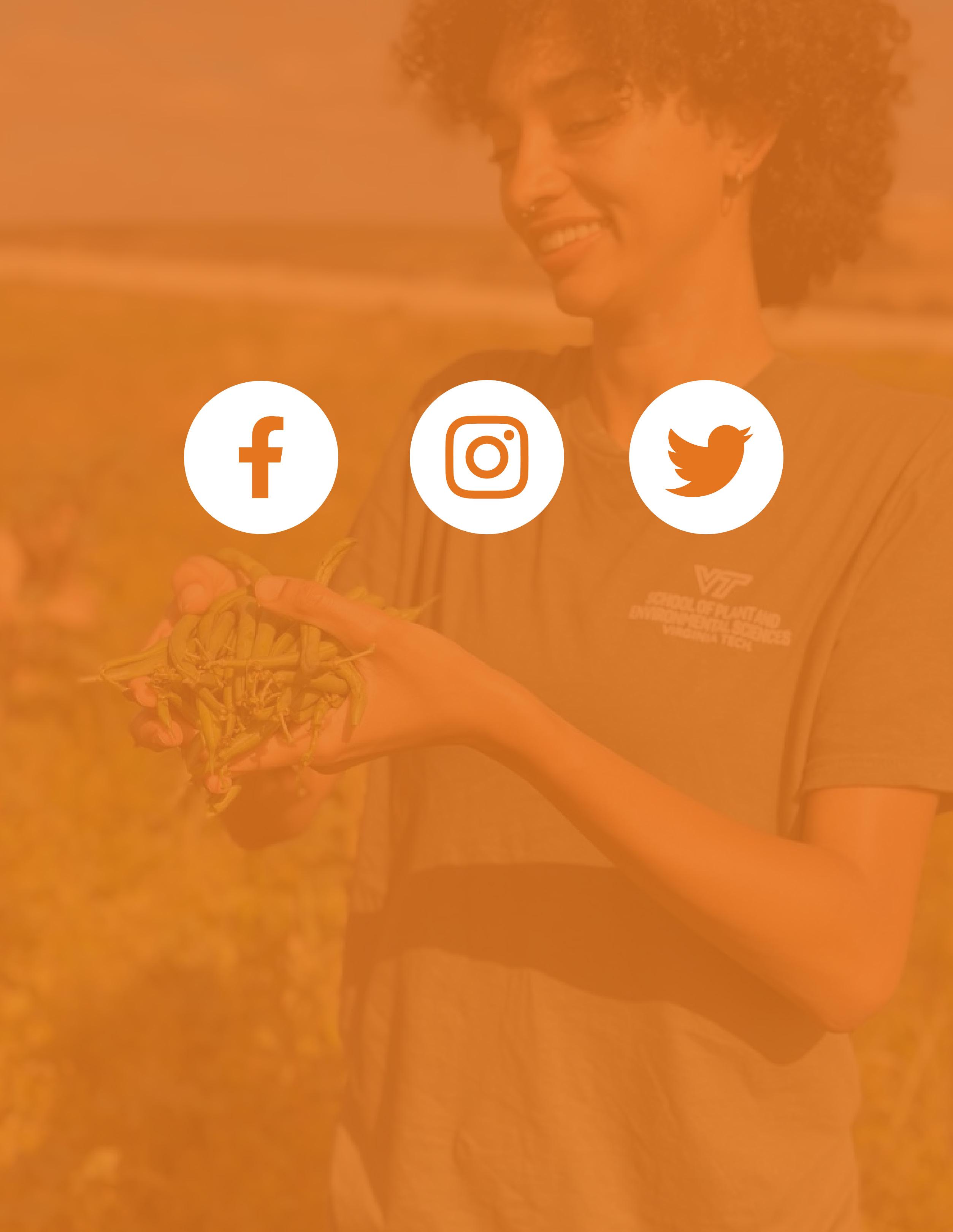
@VTSPES STAY UPDATED


Annual Research Symposium Winners
PHOTOS BY TYLER BAUGUESSTo showcase undergraduate and graduate research, students presented their findings at an annual School of Plant and Environmental Sciences (SPES) event. After student presentations, Stuart Grandy, professor of natural resources and the environment at the University of New Hampshire, gave a lecture on his recent research.
The SPES Research Symposium and Blaser Lecture was held Oct. 5. The formal conference had experts, researchers, and students discuss ideas on various topics. During the symposium, which attracted more than 130 attendees, participants engaged in discussions and explored various aspects of their respective fields.
The event also featured a presentation from a well-known researcher, or a blaser lecture. In his lecture, Grandy focused on a specialized area of research and added depth to the symposium by providing unique insights and expertise. The combination of the symposium and the blaser lecture created an environment that encouraged collaboration and learning among attendees.
Organizing this event required planning and the collaborative efforts of the entire SPES community. Financial support for this event was provided by the Roy and Catherine Blaser Endowment and SPES.
Outstanding presentations
Faculty members, postdoctoral researchers, and graduate students formed a panel of judges to evaluate presentations. In the undergraduate category, the winners were:

Sara Peters, in collaboration with Meredith Steele’s The Steele Lab - Landscape Ecosystems, presented on “Freshwater Salinization Increases Carbon Dioxide Fluxes from Stream Leaf Litter” and took first place.
Madison Payne, working with Bastiaan Bargmann’s lab, secured second place for her work on “Kneading Better Wheat: Rolling Out Novel Virginia Native Wheat Regeneration.” Payne’s research was funded by the Virginia Small Grains Board.
Mitchell Gercken, working with Boris Vinatzer’s Laboratory of Plant and Atmospheric Microbiology and Genomics, earned third place with his research on “A Genome Similarity-Based Taxonomy Could Have Provided Immediate and Stable Identifiers for the SARS-CoV-2 Species and Its Lineages.”



In the graduate category, the following students were recognized:
Mitchell Doss, Controlled Environment Agriculture Innovation Center at the Institute for Advanced Learning and Research, received first place for his presentation on “SMART Platform: Utilizing Robotics and Imaging for Plant Growth and Health Monitoring.”
Matheus Borba, Alson H. Smith Jr. Agricultural Research and Extension Center, earned second place for his research on “Managing Shoot Blight and Fire Blight on Pear with Giant Knotweed Extract.”
Aaron Tucker, Turfgrass Program, took third place with his study on “Interlab Variability of Nematode Assays from Turfgrass Systems.”
Collaboration leads to success
Eric Beers, associate director for graduate programs, orchestrated the blaser lecture by Grandy. Sheila Young, along with Crystal Wall, managed the attendee list and registration process. Karen Drake-Whitney provided additional event support.
The contributions of Prashasti Agarwal and Sophie Nicholakos, co-presidents of the Graduate Organization for SPES, were also instrumental in the success of the symposium and blaser lecture.

Professors’ Collaborate to Enrich Undergraduate Research Experiences
PHOTOS BY DAVID SCHMALEDavid Schmale and Shane Ross are keenly aware that not all colleges and universities can provide students the research opportunities they get at Virginia Tech.
So the duo has teamed up with faculty at three minority-serving institutions to help fill that gap.
“Both Shane and I had incredible opportunities as undergrads to engage in research, and we really wanted to pay it forward by creating impactful experiences for undergraduates,” said Schmale, professor in the School of Plant and Environmental Sciences. “We worked a couple years to build our relationships with our partner institutions, including historically Black colleges and universities. These relationships were seeded with key investments from the Institute for Society, Culture, and Environment and the Institute for Critical Technology and Applied Science at Virginia Tech.”
In fall 2021, Schmale and Ross, professor in the Kevin T. Crofton Department of Aerospace and Ocean Engineering, established a summer undergraduate research program in data sciences with faculty at Morehouse College, Morgan State University, and Hampden-Sydney College as co-principal investigators. The program is sponsored by a $1.2 million National Science Foundation grant called Harnessing the Data Revolution: Data Science Corps. To date, this program has provided educational and research opportunities for 88 students in 12 labs, with more than half of the students coming from partner institutions.
“Virginia Tech has access to some incredible facilities, state-of-the art equipment, and unique computational resources,” said Schmale, who is also director of the Translational Plant Sciences Center. “Other people at other institutions should be able to share in this.”
During the 10 weeks of full-time summer research, the students are surrounded by their peers, graduate students, and faculty experts who provide guidance and support. Students work in teams and are encouraged to bring their own ideas, design and conduct their own field research, and learn to make decisions from the data they collect. One of the goals of the program is to promote data literacy and provide basic training in data science to key members of the science and engineering workforce.
This summer’s program, Solving Problems with Big Data Science Problems, will be held May 19-July 28 and is accepting applications through March 21. Each participant will receive a $7,000 stipend as well as free housing and meals on campus.
Schmale and Ross originally conducted a mini sample campaign over spring break 2019, bringing in six undergraduate students from minority-serving institutions. With the award of the National Science Foundation Harnessing the Data Revolution: Data Science Corps grant, Schmale and Ross taught an online course in fall 2021 to forge a community for the students from all the participating schools.
All students taking the online course were encouraged to apply for the following summer’s program for in-depth and hands-on research application experience. One of those who assisted with the mini sample campaign was Bryan Bloomfield; he has since graduated from Morehouse College with a degree in physics. Bloomfield conducted research in the Schmale lab over the summer of 2019, which was funded by a National Science Foundation Research Experiences for Undergraduates grant.
“I had the opportunity to partner with not only Dr. Schmale, but also Dr. Ross; Regina Hanlon, who is Dr. Schmale’s lab manager; and excellent graduate students,” said Bloomfield, now a solutions engineer at Eagle Systems Inc., which specializes in logistics, technical, and engineering support of the Department of Defense weapon systems and programs. “I was so impressed with Dr. Schmale’s empowerment of people of color and of women and his ethics. He is going to push you to do your best. I think a lot about that. It was so nice to work with such morally and ethically astute people. I still think about how I can make an impact in the world everyday.”
That type of empowering experience is the core of the summer program.
“During my time in the Schmale lab, I encountered nothing but respect for my background in physics and also encouragement to express my personal interests and passions through research in a safe and fun environment,” said Rasheed Jeheeb, a current senior and physics major at Morehouse College and a trainee in the data sciences program in 2022. “It was truly an honor to be selected for this opportunity, and I will never forget the exceptional standard of mentorship that I was provided as a result.”

FALL 2023 COMMENCEMENT

GRADUATE DEGREE OBTAINED
Kathryn Artis
Tyler Croson
Lauren Cruz
Red Doyle
Kristine Ely
Ricardo Gandini Taveras
Derek Hilfiker
John Huston
Jonathan Kubesch
Xiaoying Li
Julia Pettus
Carter Phillips
Hailey Simpson
Alexis Suero Mirabal
Ian Thomson
Eric Tysarczyk
Caroline Wolcott
B.S. in Environmental Science
B.S. in Horticulture
B.S. in Environmental Science
B.S. in Environmental Science
Ph.D.
M.S. in Life Sciences
Ph.D.
B.S. in Environmental Science
Ph.D.
Ph.D.
B.S. in Horticulture
M.S.
B.S. in Environmental Science
M.S. in Life Sciences
B.S. in Environmental Science
B.S. in Environmental Science
M.S.
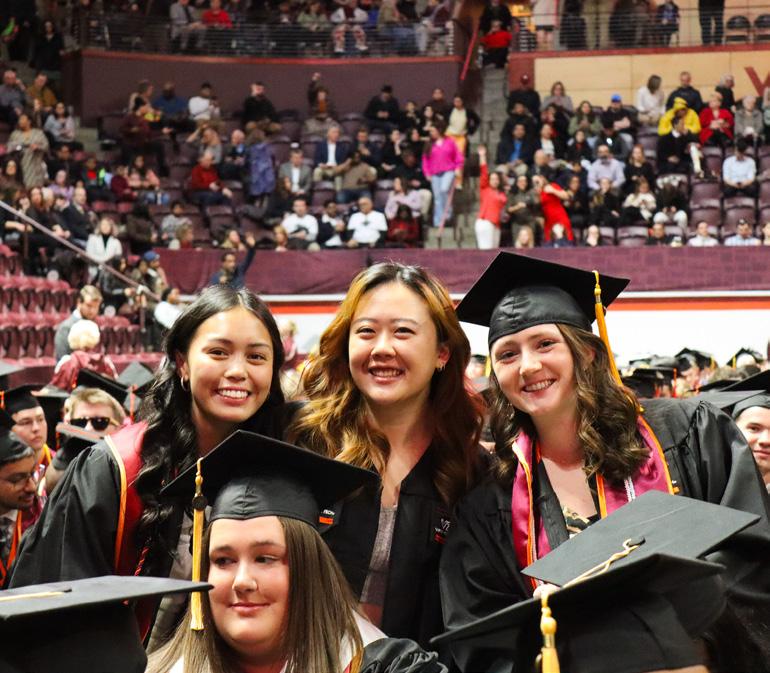















The Magazine of SPES
Spring 2024
The magazine of SPES is published four times a year for alumni, faculty, staff, students and stakeholders by the School of Plant and Environmental Sciences.
© Virginia Polytechnic Institute and State University
Editor
Tyler Bauguess Contributions
Michael Evans Editorial Office
The Magazine of SPES
185 AG Quad Lane
249 Smyth Hall
Virginia Tech is an equal opportunity and affirmative action employer. Women, minorities, individuals with disabilities, and protected veterans are strongly encouraged to apply.
Anyone having questions concerning discrimination or accessibility should contact the Office for Equity and Accessibility.

185 AG Quad Lane
249 Smyth Hall
Blacksburg, Va. 24061

SPES.VT.EDU

